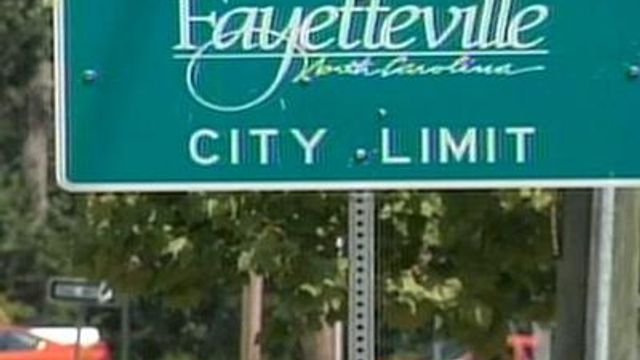Local News
Bill Could Halt Property Taxes for Some Annexed Areas
Three state lawmakers hope to provide some relief to newly annexed homeowners by sponsoring a bill that would keep cities from collecting taxes until all city services are provided.
Posted — UpdatedFAYETTEVILLE, N.C. — Charles Ragan had retired and planned to live a quiet life on his family's 75-acre country land when the city of Fayetteville annexed the property in October 2005.
Soon after, he was hit with two property tax bills totaling nearly $2,700, in part, which paid for city services such as police and fire protection.
But more than a year later, Ragan and his neighbors still don't have other city services for which he is paying.
"When you're on a limited income, it is a big hit," Ragan said.
He's still without city water and sewage service.
"Citizens are being taxed without benefit," said Bill Crisp, with Cumberland County Citizens United, a community group that has fought annexation since before it was annexed in 2005.
Crisp is one of many Fayetteville residents still angry about what he calls "the big promise."
"The argument will be that you pay for water and sewer separately," Crisp said. "But that's not the promise. The promise was that these sewer and water lines would be available to citizens, as according to the referendum passed by the City Council, and it has not happened."
But now, state lawmakers Rep. Nelson Dollar, R-Wake, Rep. Larry Brown, R-Forsyth, and Rep. Louis Pate, R-Wayne, hope to ease homeowners' pain.
They are the primary sponsors for House Bill 1958 -- one of 24 bills regarding annexation in the General Assembly. It would prohibit municipalities, such as Fayetteville, from collecting property taxes until all city services are provided, including city water and sewer.
Under state law, residents in annexed area have police, fire and solid waste pickup services on the first day of annexation. There is no requirement, however, for immediate water and sewer services, leaving residents to use well water and septic tanks.
"I think it's a good start, and it should have been like that to begin with," Ragan said.
If passed, however, the bill would not help Fayetteville residents, like Ragan (it would become effective July 1), but he believes it will make a difference for those across the state still fighting annexation.
Andy Romanet, with the North Carolina League of Municipalities, said, however, that waiting for residents in recently annexed areas to receive all services will put a burden on current city taxpayers.
In Fayetteville, the annexation means an estimated $10 million in additional property tax revenue.
Fayetteville leaders say it will take about 12 years to get everyone in the newly annexed region -- about a 27-square-mile area -- on all city services and that the city has not started the bidding process for contractors to do the work.
• Credits
Copyright 2024 by Capitol Broadcasting Company. All rights reserved. This material may not be published, broadcast, rewritten or redistributed.





